JD Classics deals in collectables, but it has the facilities to rival many modern car factories. We take a tour
Derek Hood, founder of Essex-based JD Classics, never set out to create the world's greatest old car business or, for that matter, to join the Sunday Times Rich List in 2015 with a fortune exceeding £100 million.
He attributes these things to "a stroke of luck 30 years ago", but the truth is they're a direct result of a philosophy of excellence he has carefully built up in 30 years of business.
The spark that ignited his classic car career was first struck in 1986.
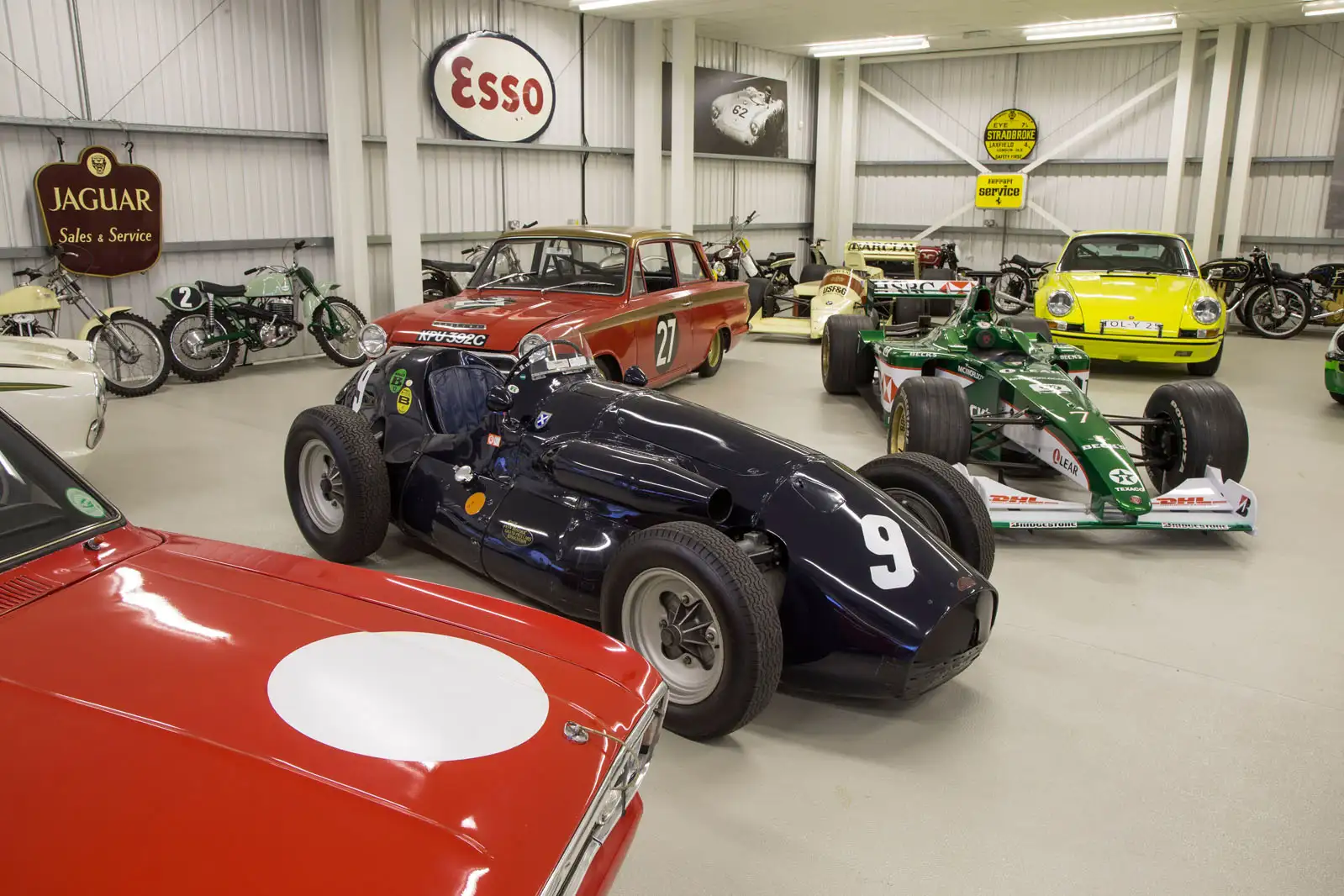
At the time, Hood was a young Essex dentist who enjoyed detailing the classic cars he bought as a hobby. But everything changed one day in 1986 when another enthusiast, walking by, spied the super-immaculate Jaguar Mk2 on Hood's drive and made him an offer he couldn't refuse. Pleased, Hood used the proceeds to buy and improve a Mini Cooper S – and the same thing happened. That car also sold straight off the drive.
"After that second one," says Hood, "it was hard to ignore the business potential. I bought a Lotus Cortina locally, built it up it better than new, advertised it – and sold it the same day. I'd always been interested in buying and selling, even at school, so after that I started trading more seriously in classic cars." By 1987, the company that became JD Classics had been launched, opening premises in Rettendon in Essex. Soon there was no more time for dentistry.
JD Classics began in earnest restoring cars to Hood's surgical standards, going either for total originality and patina, or discreetly civilising cars according to owners' desires. And racing. At first, JD concentrated on Jaguars but, about 10 years ago, it began to embrace other makes – Ferrari, Porsche and Aston Martin high among them – when it became obvious that alongside the serial car collectors who had become JD's staple customers stood another group of well-heeled people who liked owning great cars for a while, then moving to something new.
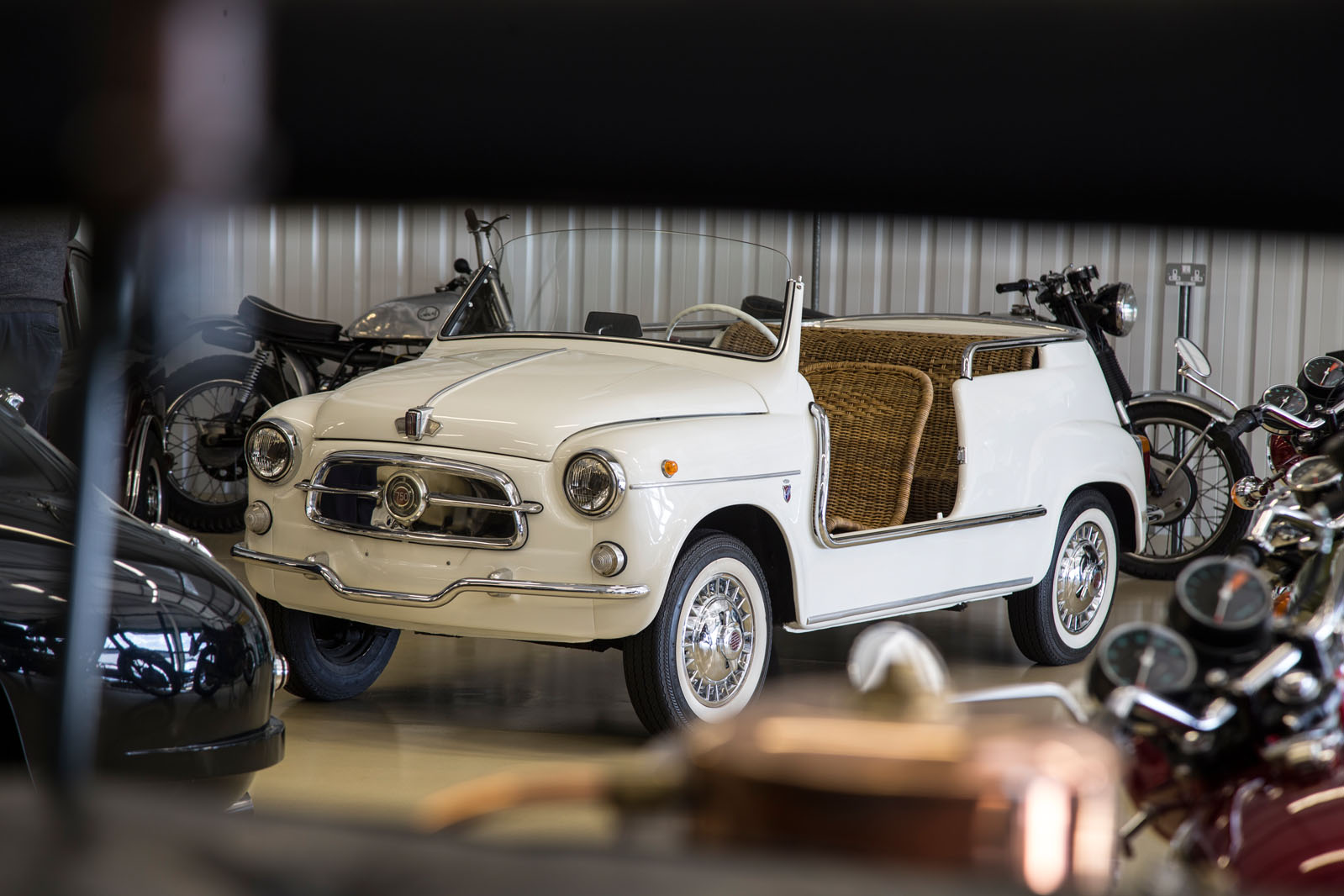
Then the business grew rapidly, surviving several 'rehearsals' in classic car prices. By the early 2000s, they had outgrown Rettendon and moved to the present 100,000sq ft facility outside Maldon, which today features seven extraordinary showrooms containing more than 150 superb road cars, racing cars and motorcycles of distinction, all for sale.
"Our motto is 'wonderful cars, made perfect'," explains JD's managing director, David Godber. A former MD of Lotus Cars (at 29), Godber has been in residence at JD these past seven months, joining soon after a private equity company, Charme Capital Partners, acquired a majority interest in JD and left Hood with what the financial press described as "a substantial stake".
Godber leads us on a tour he says will take at least an hour, explaining JD's philosophy as we go: "We aim to make our cars as they should have been made in the first place, while staying true to the philosophy of the people who created them. We have strong opinions on the kind of treatment a car deserves. We're big believers in authenticity and provenance – in fact, the best advice we can give to the owner of a great car is to buy a fireproof box for the documentation, which has become all-important."
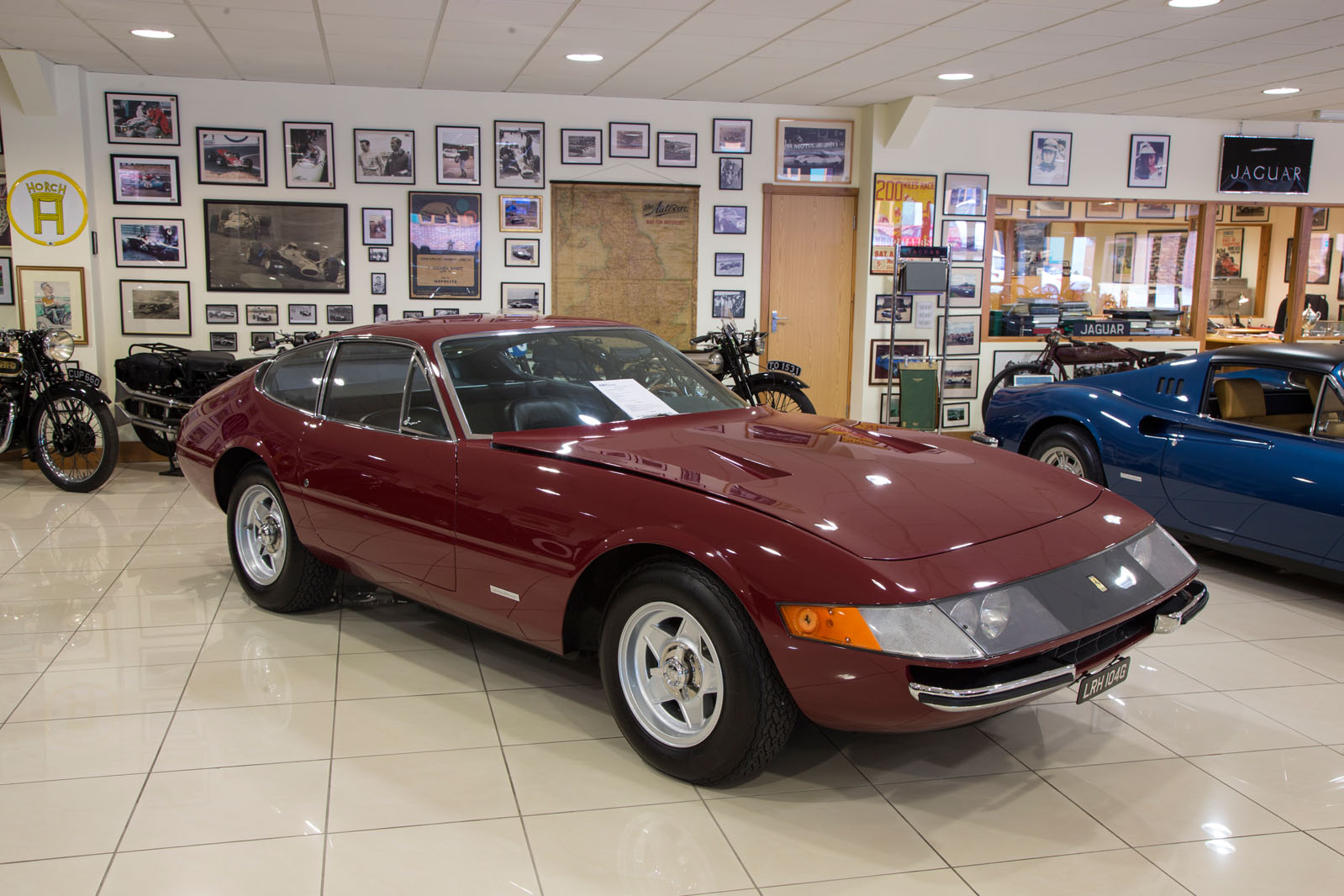
Just inside the door of the main showroom is a 1953 Ferrari 250 MM Vignale Spider once raced by Mike Hawthorn. Nearby is an impossibly low-miles early right-hand-drive Ferrari Daytona, and over there is the very Jaguar XK120 given to Le Mans hero Mike Salmon on his 21st birthday. Beside it stands a perfect red Lamborghini Miura SV, one of only 20 built in right-hand drive. In another showroom, very soon, I will fall in love with a Jaguar Mk1 saloon owned by the legendary racer Gerry Marshall and practically trip over a genuine Shelby Cobra 289, the last ever to be raced by Carroll Shelby himself. So many cars of equal importance line our route, it becomes bewildering. My heart rate is not normal.
JD's operations manager is Chris Ward, a former Nissan works racing driver who first met Hood at a race meeting and has subsequently successfully but sympathetically campaigned some of JD's most important cars in flagship events like the Le Mans Classic, the Mille Miglia (where JD is principal sponsor) and the Goodwood Revival. Racing million-pound automotive icons gives you a special feel for quality workshop procedure, he says. Ward reckons JD's business (worth well over £100m annually) is roughly divided into three equal parts: restoring customers' cars, buying cars for restoration and subsequent sale, and racing cars around the world – either helping clients compete at selected meetings or racing their own cars as a way of attracting buyers to them.
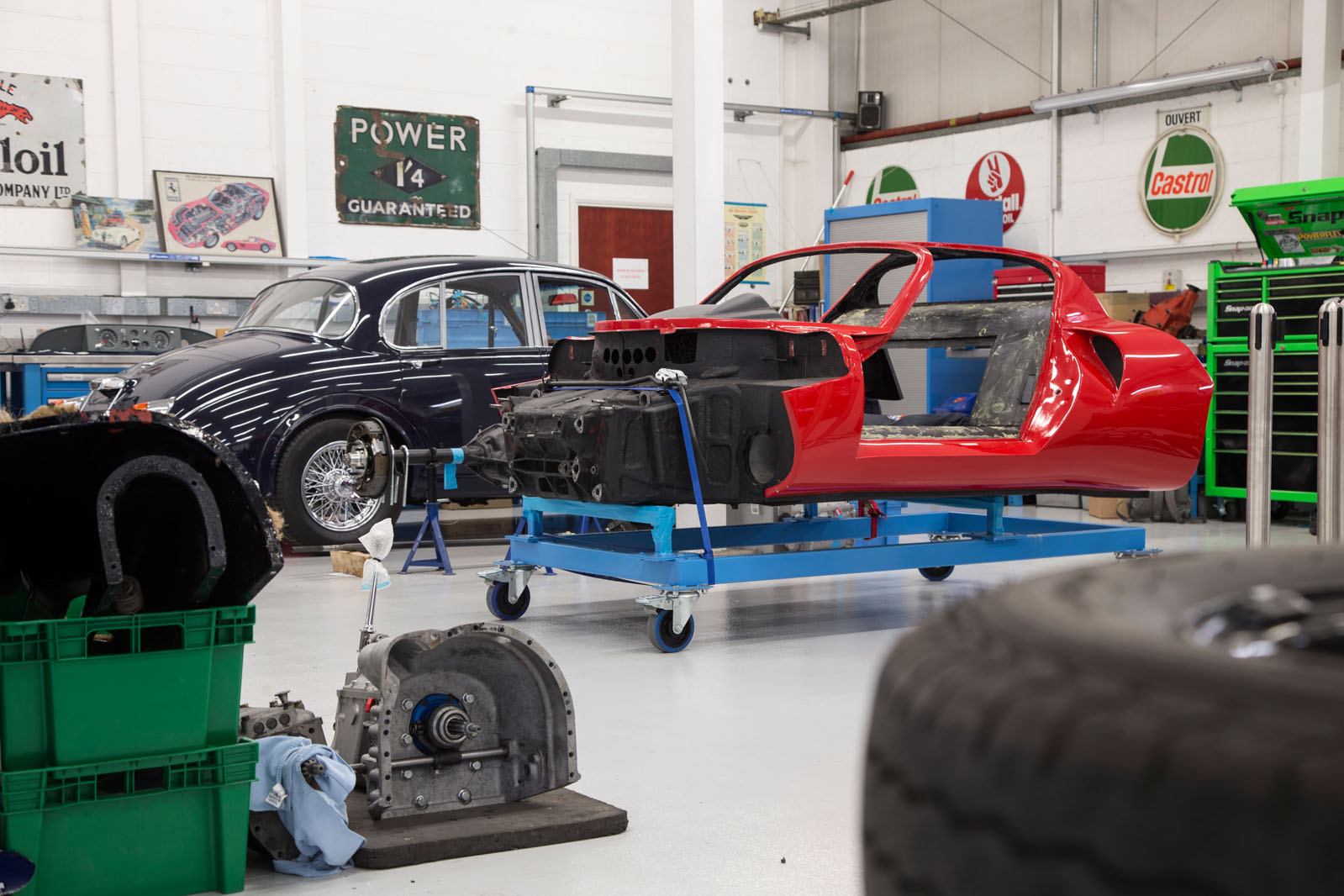
Around half the space at Maldon is given over to workshops, every one packed with interesting cars. Here, there's an XK120 bought a few years ago by a German client, back in for a five-speed gearbox. Over there is a Fiat Jolly (a cute, cut-down 600). Close by, not far from an XK120 once owned by Clark Gable, is a Triumph TR5 getting the full treatment.
We stroll on: it strikes me that there's so much workshop space, equipment and expertise here that JD Classics compares well with some of the UK's small-volume car manufacturing plants. There's a restoration shop, a body shop, a metalworking shop, a race prepshop, an engine shop and a huge upstairs store of reclaimed parts, with 250 engines ready to play a role in a restoration project.
"We make many of our own panels for restoration jobs," says Godber. "Some pattern parts are available, but many of the cars we restore are from a time when parts had to be adapted to fit. If you make your own parts, you can ensure a top-quality job." Even so, JD also uses a network of highly skilled suppliers ("Most are within a two-mile radius of us," says Ward) for key jobs such as fabrication, casting and some machining, and they've built a 30-year network of suppliers for small stuff: decals, bulbs, batteries, light lenses, fuses. They employ apprentices to learn the age-old skills and invite local schoolkids in too.
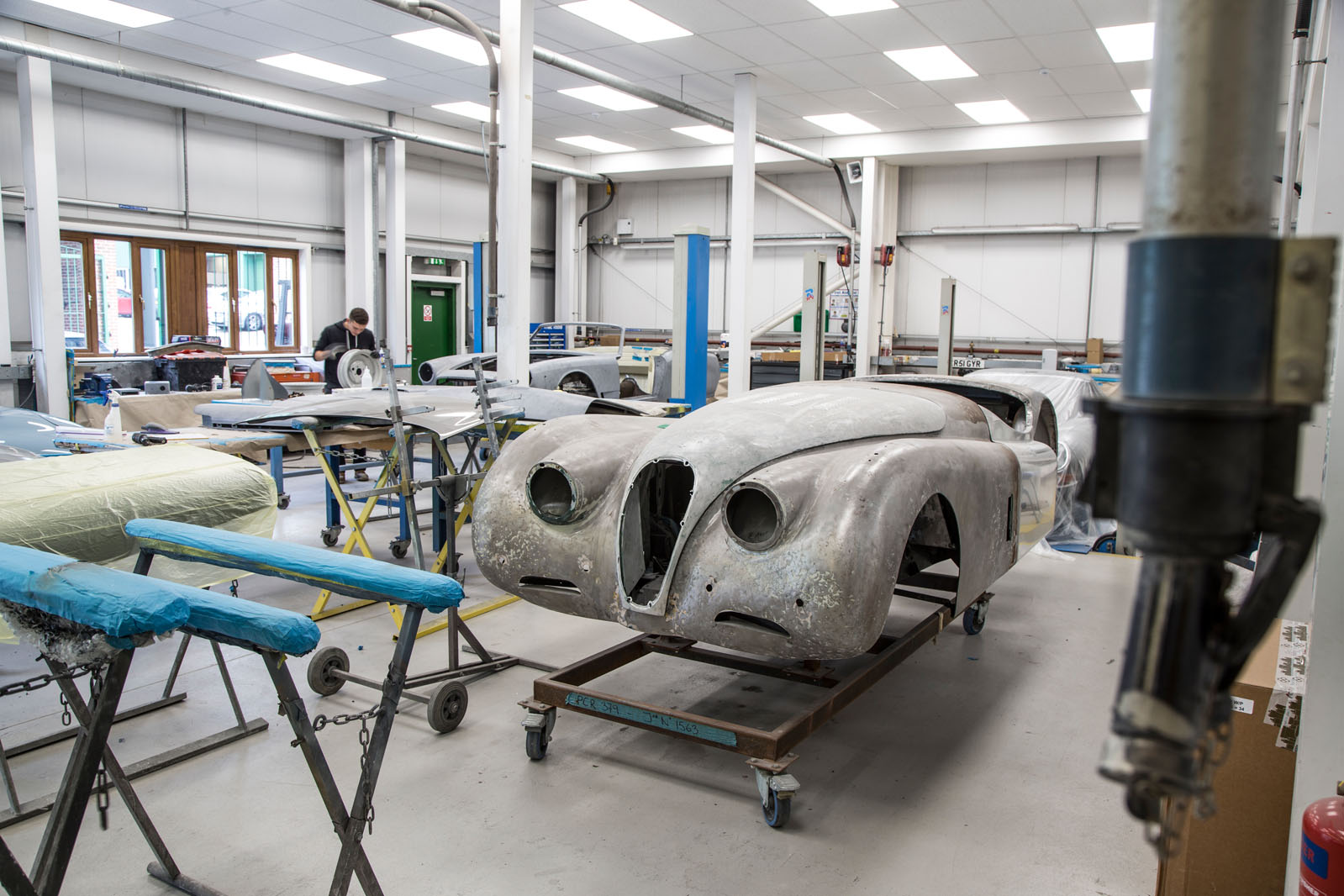
The last stop for any car that comes through JD Classics is an inspection bay ruled by master-detailer 'Big' Phil Grey, who decides whether a finished job is good enough to leave the premises. When we meet, he'sin the final stages of preparing a gleaming Porsche 356 for delivery to a swanky London hotel, where it will soon become a new owner's surprise birthday present. Too soon, against my every instinct, it's time to leave JD's rarefied atmosphere. Before departure, I ask Godber how his wonderful business will cope with the clampdown on oil-fuelled cars and the age of electrification ahead. "Easy," he says, in what I sense is an oft-repeated answer. "Cars like ours will always be special. They'll get more special. After all, in former times, owning a horse was normal. Now it's a luxury."
The future for JD Classics
Thirty-year-old JD Classics looks a very well developed business, but its new owner, Charme Capital Partners, clearly believes there's scope for more expansion. The business is already reaping a good return from the Park Lane showroom it opened a couple of years ago, explains managing director David Godber, and is about to do it again across the Atlantic in Newport Beach. If this works, outposts are likely to follow, though the real restoration work will always stay in Essex.
He says: "Our business will always be based around the three pillars – racing, restoration and sales – but there are plenty more things we can do. We could offer financial services, insurance, storage and transport, and event support. Some of it we do already, but we will expand. We're also starting to help people improve and curate their collections, advising them on sales and acquisitions. And we want to help people run cars that might otherwise be considered difficult, perhaps an F1 car or a something unusual like a Bugatti EB110. We'll go anywhere to help."
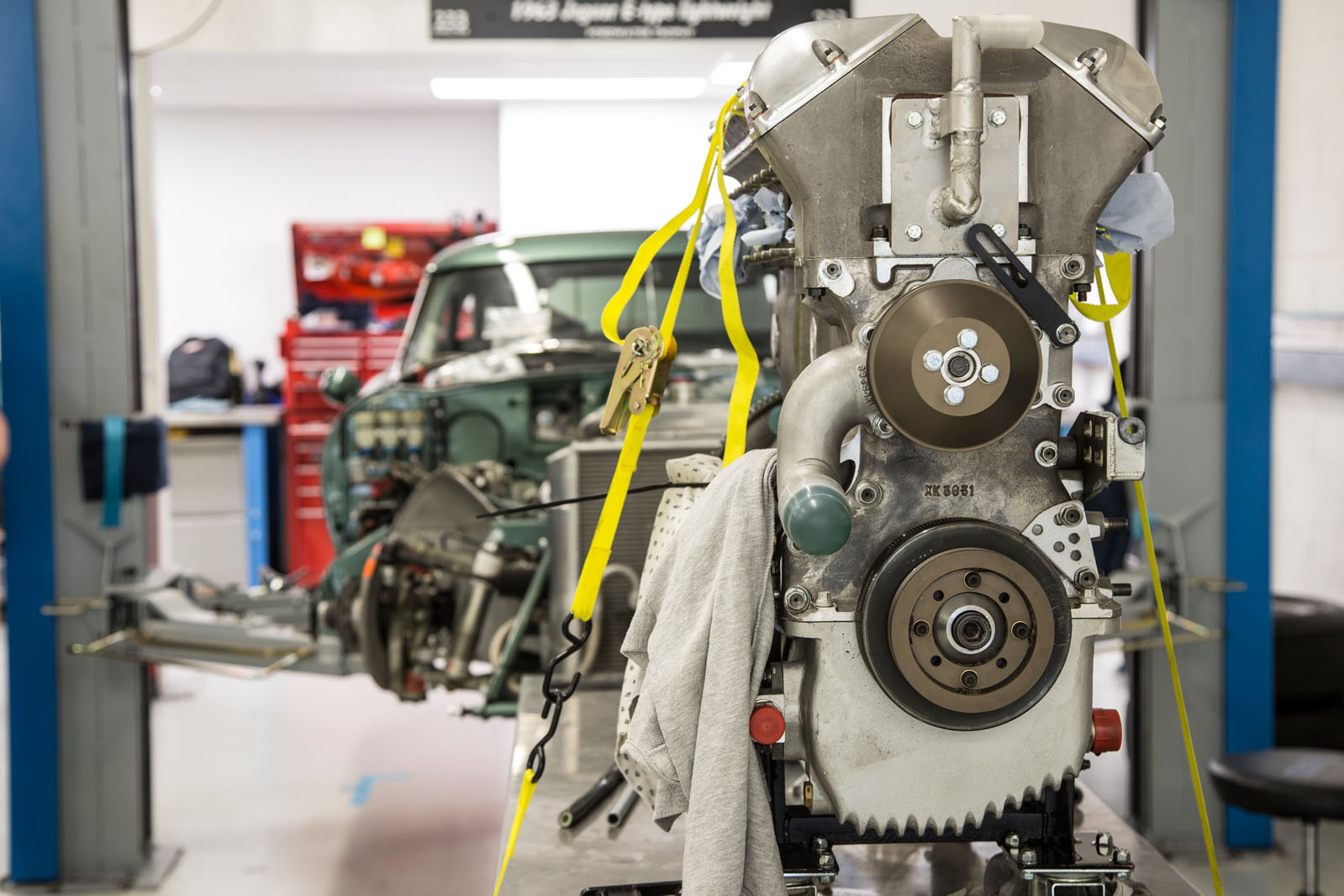
The classic car society continues to expand fast, says Godber: "There are more and more international events: shows, concours, clubs and race meetings. We have 30 years of experience and we'll use it to help owners and collectors any way they want."
Classic car values: where from here?
Derek Hood makes no bones about it: the values of many classic cars have peaked and some are going down. But not, he insists, the best cars in the market.
"I've known three reversals in 30 years," he says, "and the reasons have always been the same. People forget that the cars that have risen fastest are the highest-quality models with the best stories attached.
"What's happening now is that speculators with average and sub-standard cars have become involved – they've been making up 30-35% of the market – and many can't see past the shine."
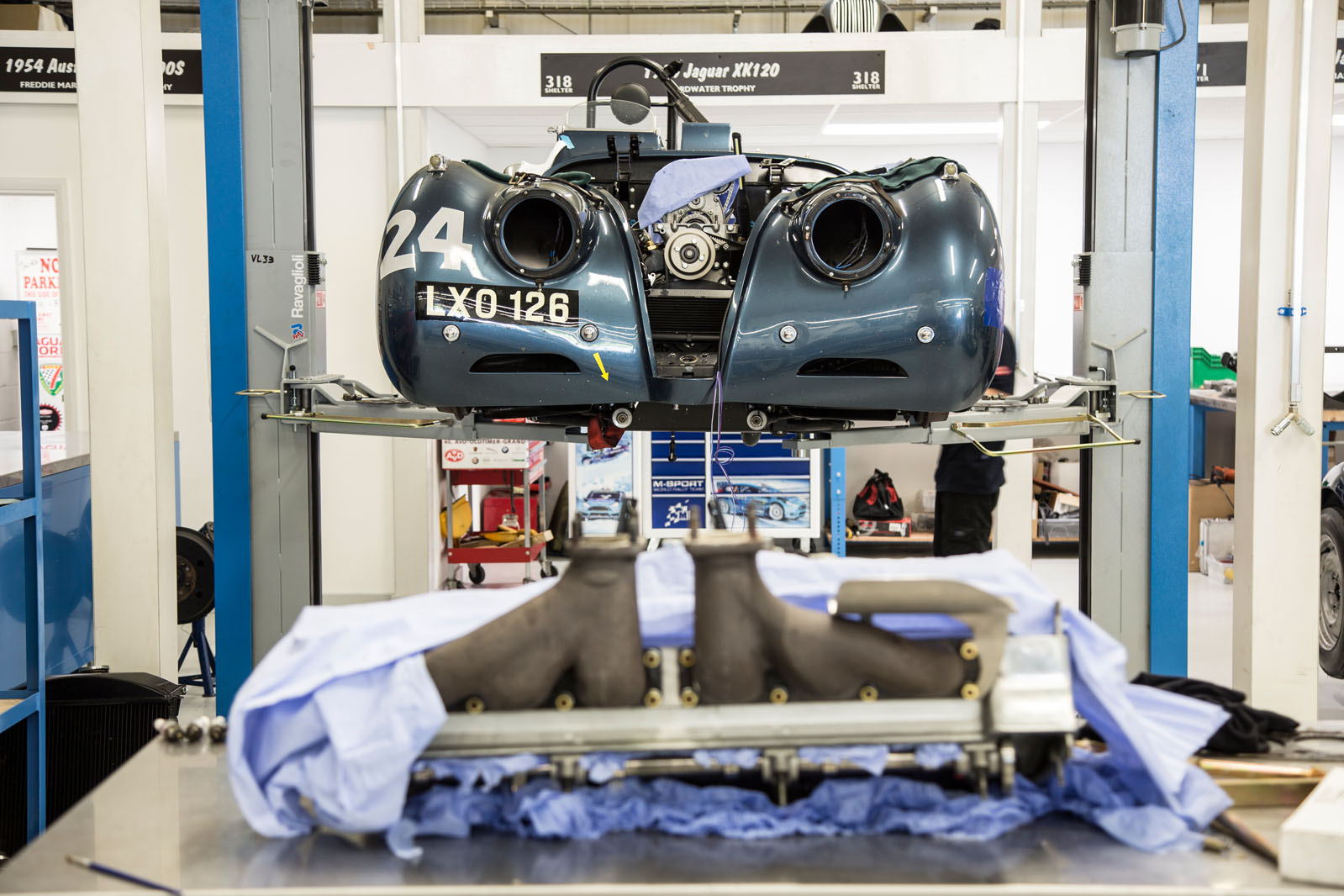
When the economy weakens, Hood explains, some of these recent arrivals need to sell, but the market doesn't like their cars and the so-called fire sales begin.
"If you analyse the top auctions," says Hood, "you'll find there's a completely different market for top-quality cars. It's still strong. In the past few months, we've seen four world records."